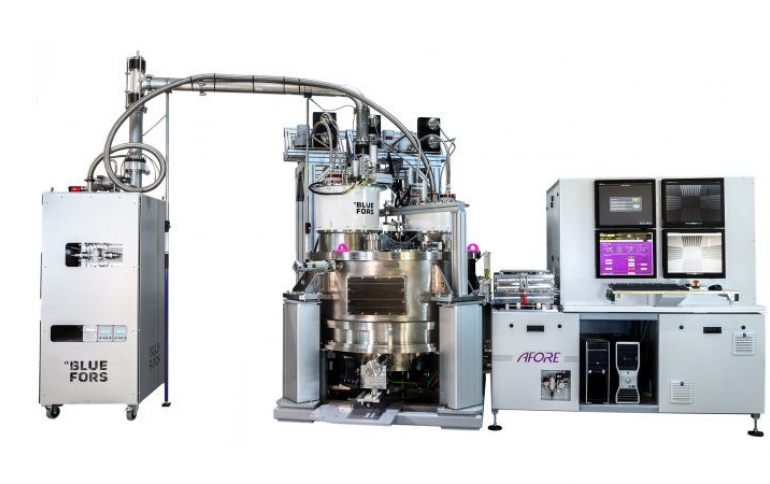
Intel Cryoprober Tool Could Accelerate Quantum Computing
Intel, Bluefors and Afore have introduced the first cryoprober, a quantum testing device named the Cryogenic Wafer Prober, developed to speed the development of quantum computing solutions.
The cryoprober tool has been designed to test and validate qubits needed for quantum computing. It allows researchers to test qubits on 300mm wafers down to temperatures of a few kelvins.
The first Cryogenic Wafer Prober will be located at Intel’s Oregon campus next to several quantum computing dilution refrigerators.
One of the biggest challenges with quantum computing is data collection and access to data. Today, each quantum processor is tested for months in a low-temperature dilution refrigerator to determine what works and what doesn’t work.
Conventional transistors are very different, and with the right tools, Intel can characterize a large subset of these transistors on a 300mm wafer in about an hour and rapidly inform the feedback loop back to the fabrication line. For quantum computing, however, the turn-on characteristics of qubits must be measured at low temperatures of less than a few kelvins above absolute zero. Until now, the electrical characterization of qubits was very slow compared with traditional transistors, often taking days to collect even small subsets of data.
Intel approached Bluefors, a cryogen-free dilution refrigerator systems expert, who partnered with Afore, a micro-electro-mechanical systems (MEMS) test solutions provider, to design and manufacture the device. The Cryogenic Wafer Prober allows researchers to test qubits on 300mm wafers down to temperatures of a few kelvins, making it a first-of-its-kind testing tool for quantum computing.
This tool allows Intel to automate and collect information on spin qubits, including sources of quantum noise, the quality of quantum dots and the materials that matter in building spin qubits in a matter of minutes versus weeks.
In a first demonstration of the utility of the Cryogenic Wafer Prober, Intel measured the electrical turn-on characteristic for more than 100 qubit structures across a wafer fabricated at Intel’s silicon qubit fabrication flow on its 300mm processing line in Oregon. The tool was able to collect high-volume cryogenic data and create a statistical correlation of the increase in turn-on voltage between room temperature and cryogenic temperature. With this tool, Intel hopes to be able to speed feedback into the silicon spin qubit fabrication line and accelerate quantum computing research and development.





















